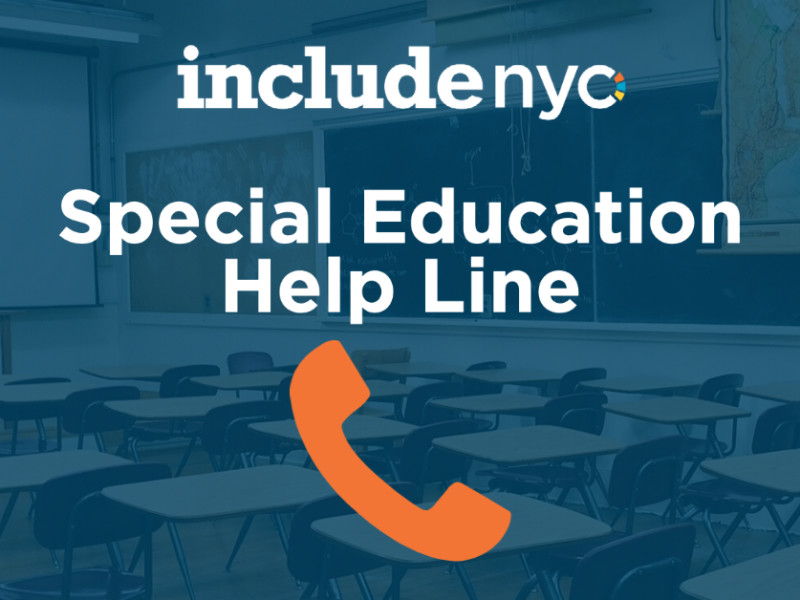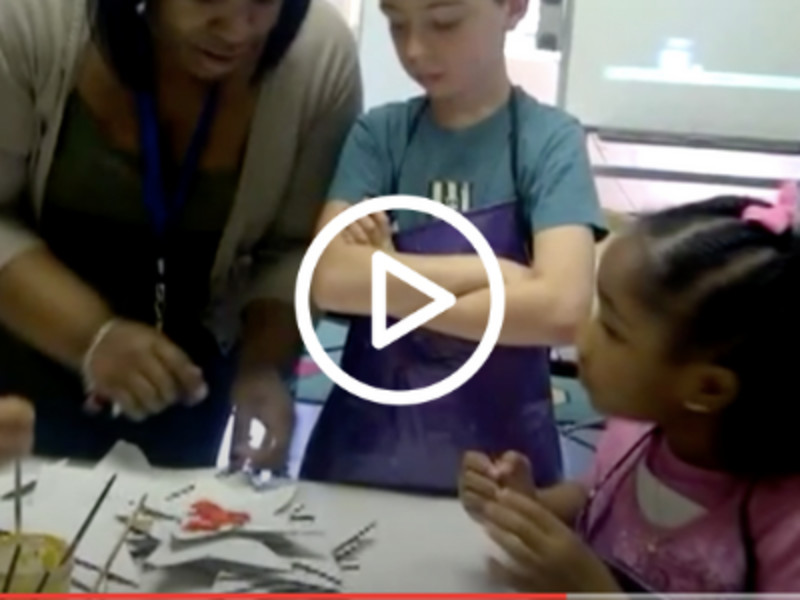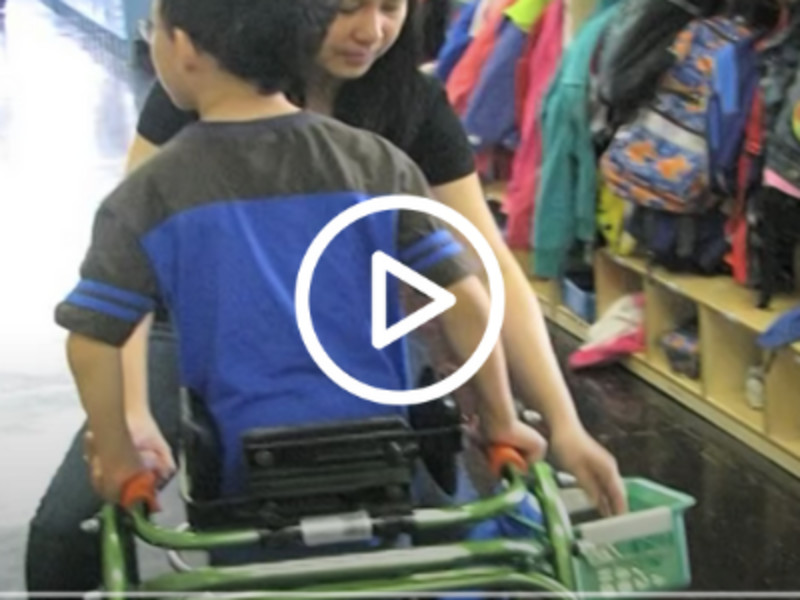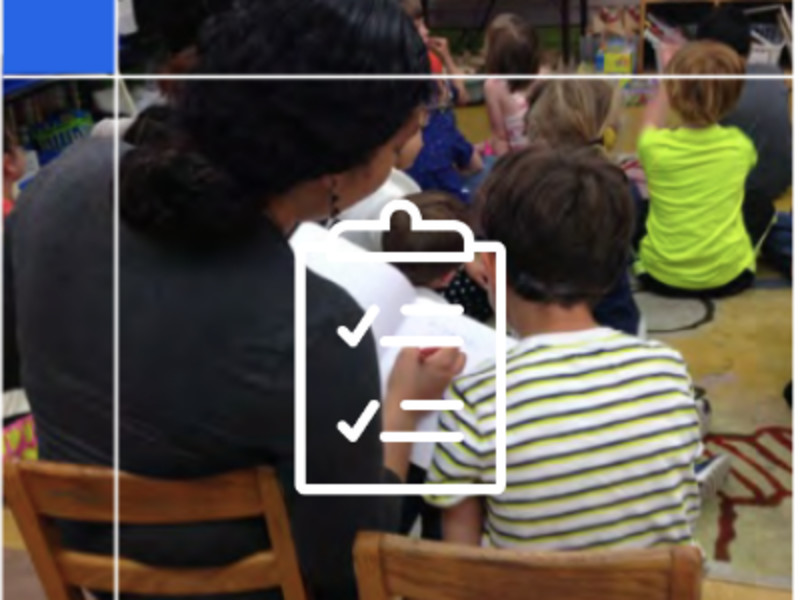Special Education
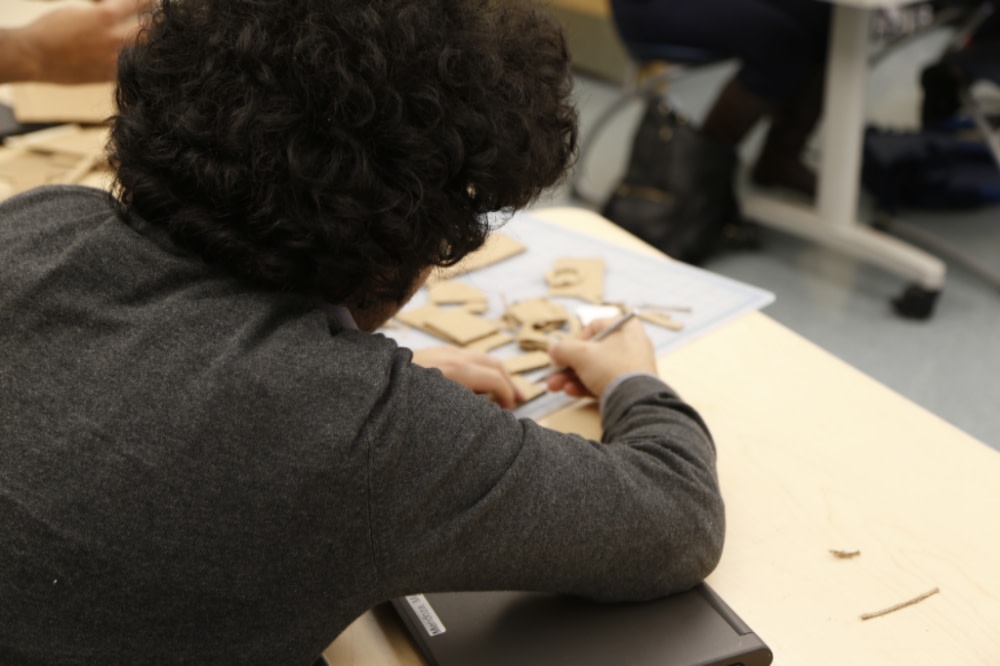
Every child is different. One child may need more support learning to read than her classmate, and another may “get” math concepts better when he has something to touch and count. Supporting how different kids learn is part of the Department of Education’s job, and there are many services in place at schools meant to meet all these needs from simple instructional changes to programs like Reading Recovery. But for some kids, learning differences or physical impairments mean they need a broader network of support from teachers with special training. This extra help is called special education. It’s free, and your child has a right to it under federal law.
Notice: Attorneys representing children with disabilities and their parents in a class action lawsuit concerning certain special education services and policies in New York City are seeking access to student records. These records are covered by a Confidentiality Agreement. Please See the Notice Regarding the Confidential Release of Student Records to class counsel in a class action litigation involving students with autism and students attending state-approved non-public schools.
Least restrictive environment
The Department of Education’s goal is to serve kids with disabilities in their neighborhood schools alongside general education students whenever possible. Research shows that kids with disabilities perform better in mixed classes while general ed kids do just as well academically and gain important social skills. “Least restrictive environment” means teachers and administrators are meant to consider how a special service or class will affect a student academically, socially and emotionally, and whether a less severe intervention—like a specialized class just for one or two subjects instead of the whole day—could serve a child’s needs just as well.
The Department of Education's Special Education Reform passed in 2012 had sweeping implications for how New York City schools serve students with special needs. Special Ed Reform means kids with disabilities are to be treated as an integral part of the school community—meeting their needs should be seen as opportunities for schools to stretch and improve, not excuses to kick kids out. Administrators are not supposed to tell you that you have to find another school or that your child must make do with less services than he requires.
Evaluations and IEPs
If you think your child may have a disability, ask your school, in writing, for an evaluation by a psychologist. A psychologist will administer a series of tests to determine what kind of extra help your child may need and whether further evaluations by a specialist such as an occupational or physical therapist, may be warranted.
If you prefer to have a private evaluation, you may ask your child’s doctor for a referral, but be prepared: These tests are expensive. For those without insurance coverage, St. John's Center for Psychological and Educational Testing offers comprehensive testing on a sliding fee scale, but expect to pay at least $500. In some cases the city may cover the expense if you believe the DOE evaluation is inadequate.
Once the evaluation process is complete, the school staff will recommend an IEP (individualized education program). The IEP is a legal document that describes the services to which your child is entitled. Both a parent and school officials must approve an IEP before it becomes official.
504 accommodations
Sometimes children with disabilities need inexpensive, common-sense changes in classroom routines to help them succeed in school. For example, a child with a learning disability may need extra time on tests. A child who is visually impaired may need books with large print—or a child who has attentional issues may need movement breaks.
These simple changes are called 504 accommodations, named after Section 504 of the Rehabilitation Act of 1973, which bans discrimination on the basis of physical or mental disability in federally funded programs.
Every school should have a person designated as the 504 coordinator. Requests for accommodations must be submitted in writing to the coordinator. The 504 coordinator then schedules a meeting with a child’s parents and teachers within 30 days. A 504 plan is not an IEP. However, like an IEP, it is a legal document that the school must follow.
What services are available?
A wide range of services is available for students, including psychological counseling, occupational therapy (help with sensory integration or fine motor skills, such as handwriting), physical therapy (help with gross motor skills, such as climbing stairs), assistive technology and speech and language therapy.
Your child may need help from a special education teacher in his regular class, or he may get extra help outside his regular class a few hours a week. This help is called resource room or SETSS (special education teacher support services).
- Your child may be assigned to a class that has two teachers, one of whom is trained in special education. This is called ICT (integrated co-teaching), formerly CTT (collaborative team-teaching). In such classes, students with special needs make up no more than 40 percent of the class and learn alongside their general education peers.
- A child with Asperger's (a high-functioning form of autism) may be eligible for a NEST program. Like other team-teaching classes, NEST classes have two teachers and a mix of general education and special education pupils.
- A child with severe disabilities may be assigned a small, separate class with other disabled children. This is called a self-contained class.
- In rare circumstances, a child with severe disabilities may be assigned to a special school, called a District 75 school. The district family advocate at District 75, (400 First Avenue, NY, NY 10010) may be able to provide guidance. Call (212) 802-1614.
- If a DOE school cannot provide the help your child needs, THEY may be eligible to attend a private school at the city’s expense.
For a broader list of the services the Department of Education provides and a list of contacts, visit the Special Education section of the DOE website. See also A Shared Path to Success: Family Guide to Special Education Services for School-Age Children.
Questions to ask
All schools are supposed to offer special education services, but the reality is some schools are much more accommodating than others—and some are much more experienced. Some schools throw up their hands when a child can’t “fit in,” others value finding new solutions that will work for the child. If your child has special needs, you want to make sure she goes to a school that has the knowledge and the will to help her succeed. Questions to ask:
- Does your school have ICT (integrated co-teaching) classes (classes with two teachers)? Are the special education teachers full-time or part-time?
- What kind of individual help can the teachers give my child?
- How do you handle student conflicts?
- How many special education teachers does the school have? Do they receive any ongoing training?
- Do you have a social-emotional program in place?
- Do most of the school's special education students graduate with a Regents diploma? For a quick overview on how to make the most out of touring schools with your special needs child, check out our video ## If you have trouble ... Many parents have enormous difficulty getting the help their child needs. If you have trouble getting services in place for your child, or if you disagree with the Department of Education’s recommendation, you may request mediation. Mediation is a meeting with a representative from the Department of Education and an independent mediator, such as the New York Peace Institute. Find out more about mediation services available through the New York State Education Department.
If mediation doesn’t work, you may request an impartial hearing by writing to the Office of Impartial Hearings, 131 Livingston Street, Room 201, Brooklyn, NY 11201. Requests should include your child’s name and address, the name of her school, the nature of the problem and a proposed resolution. Hearing decisions may be appealed to the state.
Your child has a right to stay put in his current school while you are challenging the DOE. Both the parents and the school must agree to change a child's placement.
There are a range of support organizations that specialize in guiding parents through these processes and helping their children find the best educational environment.
INCLUDE NYC
The NYC public school system is responsible for providing the academic and behavioral supports your child needs. If you feel those needs are not being met, or you want to learn more about special education services, reach out to INCLUDEnyc. They are a leading source of training and information in New York City for young people ages 0-26 with disabilities, their parents, and the professionals who support them. They offer workshops, one-to-one support, information and training so you can advocate for your child. You can also call their Help Line at 212-677-4660 (English) or 212-677-4668 (Español).
Sinergia
Offers support to families of children with disabilities, particularly those who are underserved and have limited English proficiency.
Advocates for Children
A staff of lawyers and education specialists offering free legal and advocacy services to help families and their children receive the services they deserve.
Parent to Parent
Parent to Parent offers a place to meet, share information and find support for families of students with special needs and the professionals and educators who work with them.
Parent to Parent NY, Inc.
Parent to Parent NY, Inc. is a support and information resource network for parents and families of children with disabilities. It is a Staten Island Special Education Parent Technical Assistance Center (SEPTAC) funded by the New York State Education Department/Office of Special Education.
